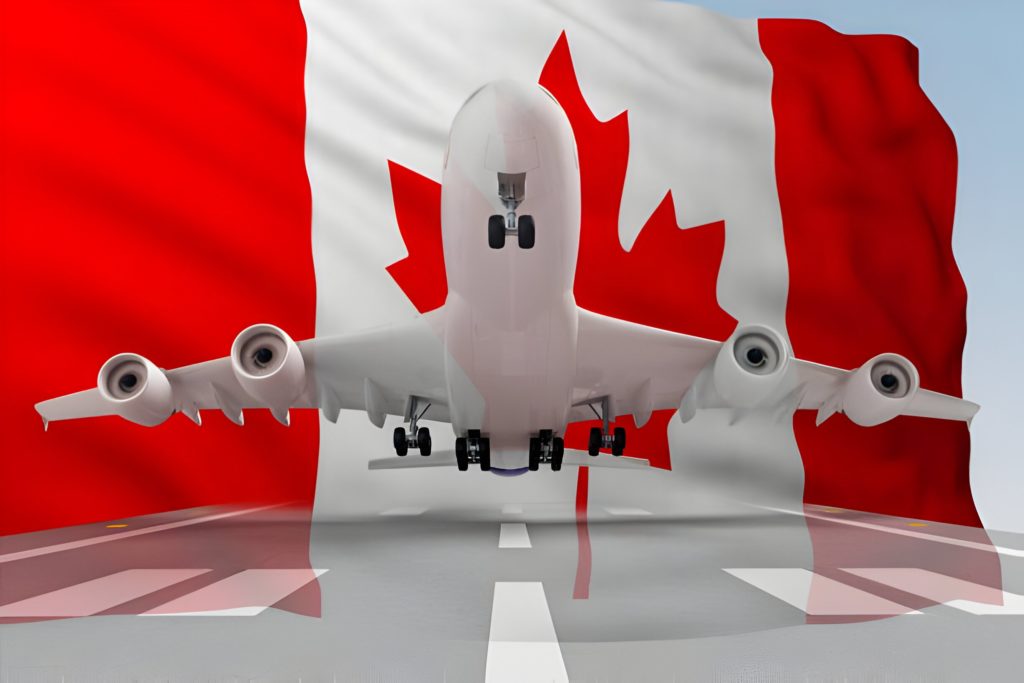Canada is the second largest country after Russia and it aims to welcome over 1.4 million permanent residents from 2024-2026. Whether you want to move to Canada for work, study, or a fresh start, it requires careful planning and research.
Relocating to a new country can be both an exciting and daunting experience. Canada, with its breathtaking landscapes, multicultural cities, and high quality of life, is a popular destination for individuals and families seeking new opportunities.
In this article, we’ll share tips to help you navigate your relocation smoothly and settle into your new Canadian life.
10 Things to Keep in Mind When Moving to Canada
1. Know The Visa and Immigration Requirements
You must understand the visa and immigration requirements before moving to Canada. Canada offers several immigration pathways, each with specific criteria:
Pathways to Canada
Express Entry
Express Entry is a popular immigration program for skilled workers. It manages applications for three federal economic immigration programs:
- Federal Skilled Worker Program (FSWP)
- Federal Skilled Trades Program (FSTP)
- Canadian Experience Class (CEC)
Applicants are scored based on factors such as age, education, work experience, and language proficiency. The highest-ranking candidates are invited to apply for permanent residency.
Provincial Nominee Program (PNP)
Each Canadian province and territory has its own Provincial Nominee Program (PNP) to attract immigrants with skills and experience that meet local labor market needs. If you are nominated by a province, you can apply for permanent residency.
Family Sponsorship
If you have a close family member who is a Canadian citizen or permanent resident, they may be able to sponsor you for permanent residency.
Study Permits
For those planning to study in Canada, a study permit is required. To obtain one, you need an acceptance letter from a designated learning institution, proof of sufficient funds, and a clean criminal record.
Work Permits
Canada offers various work permits, such as employer-specific work permits and open work permits, for individuals who have a job offer or are eligible to work without a job offer.
Start-Up Visa
Entrepreneurs with innovative business ideas can apply for the Start-Up Visa Program, which requires support from a designated organization in Canada.
It’s crucial to determine the most suitable immigration pathway for your circumstances and ensure you meet all requirements. Consult the official website of Immigration, Refugees, and Citizenship Canada (IRCC) for detailed information and application guidelines.
2. Understand Canadian Provinces and Cities
Canada has diverse regions offering unique lifestyles and opportunities. Researching different provinces and cities will help you choose the best place to settle based on your preferences and needs.
Here are some of the most popular provinces:
Ontario
Ontario, home to Canada’s largest city, Toronto, is a major economic hub with diverse job opportunities and cultural attractions. The capital city, Ottawa, is known for its high quality of life and vibrant cultural scene.
British Columbia
British Columbia (BC) is famous for its stunning natural landscapes and mild climate. Vancouver, BC’s largest city, offers a dynamic urban lifestyle with access to outdoor activities like hiking and skiing.
Quebec
Quebec is a predominantly French-speaking province with a rich cultural heritage. Montreal, its largest city, is known for its arts, festivals, and culinary scene. Quebec City, the provincial capital, offers a blend of European charm and North American modernity.
Alberta
Alberta is known for its strong economy, driven by the oil and gas industry. Calgary and Edmonton, Alberta’s major cities, offer high living standards and are close to the Rocky Mountains, providing outdoor recreation opportunities.
Other Provinces
Other provinces like Manitoba, Saskatchewan, Nova Scotia, and New Brunswick offer unique lifestyles and growing communities, making them attractive options for newcomers seeking a quieter, more affordable living environment.
Consider factors such as climate, cost of living, job opportunities, language, and lifestyle when choosing your destination in Canada.
3. Be Prepared Financially
Relocating to Canada involves various costs, from visa application fees to settling expenses. Proper financial planning is crucial to ensure a smooth transition.
Budget for Initial Expenses
Visa and Immigration Fees: These can include application fees, biometrics fees, and the Right of Permanent Residence Fee (RPRF).
Travel Costs: Airfare and transportation costs to your new city.
Temporary Accommodation: Hotel or Airbnb costs upon arrival.
First Month’s Rent and Security Deposit: Rental costs for your initial accommodation.
Furniture and Household Items: Costs for setting up your new home.
Groceries and Essentials: Initial costs for food and everyday items.
Open a Canadian Bank Account
Opening a bank account in Canada as soon as you arrive is essential for managing your finances. Major Canadian banks, such as RBC, TD, Scotiabank, BMO, and CIBC, offer newcomer packages with benefits like free banking for a limited period and assistance with credit card applications.
Understand the Cost of Living
The cost of living in Canada varies by region. Larger cities like Toronto and Vancouver have higher living costs, while smaller cities and towns are more affordable. Research housing, transportation, healthcare, and grocery costs in your chosen location to create an accurate budget.
4. Secure Employment
Securing employment is a crucial step in your relocation process. Canada has a strong job market, but you need to be proactive and well-prepared.
Update Your Resume and LinkedIn Profile
Canadian employers expect resumes to be concise and tailored to the job you’re applying for. Highlight your skills, experience, and achievements. A well-optimized LinkedIn profile can also help you network and find job opportunities.
Job Search Strategies
Online Job Portals: Websites like BorderlessHR list job openings across Canada.
Company Websites: Check the career pages of companies you’re interested in.
Networking: Attend industry events, join professional associations, and connect with people in your field.
Recruitment Agencies: Consider registering with recruitment agencies that specialize in your industry.
Understand Canadian Workplace Culture
Familiarize yourself with Canadian workplace culture, which values punctuality, teamwork, and professionalism. Understanding these cultural nuances will help you integrate into your new work environment more smoothly.
5. Find Housing
Finding suitable housing is a top priority when moving to Canada. Whether you choose to rent or buy, it’s important to understand the local housing market and your options.
Renting
Most newcomers start by renting a home. Research rental listings on websites like Craigslist, Kijiji, and Realtor.ca. Consider factors such as proximity to work or school, public transportation, and neighborhood safety. Rental costs can vary significantly, so compare prices and amenities.
Buying
Buying a home may be a viable option if you want to stay in Canada long-term. Work with a real estate agent who can guide you through the home-buying process. Be aware of additional costs such as property taxes, maintenance fees, and mortgage insurance.
Temporary Accommodation
You may need temporary accommodation upon arrival until you find a permanent home. Look for short-term rentals, hotels, or Airbnb options. This will give you time to explore different neighborhoods and make an informed decision.
6. Understand The Healthcare System
Canada’s healthcare system is publicly funded and provides high-quality medical services. As a newcomer, it’s important to understand how to access healthcare in your province or territory.
Health Insurance
Permanent residents are eligible for provincial health insurance, which covers most medical services. Each province has its health insurance plan, and you must apply for a health card. There may be a waiting period before coverage begins. Consider purchasing private health insurance for the interim.
Finding a Family Doctor
Register with a family doctor who will be your primary healthcare provider. They can refer you to specialists if needed. Use provincial resources to find doctors accepting new patients.
Emergency Services
In case of a medical emergency, dial 911 for immediate assistance. Familiarize yourself with the locations of nearby hospitals and clinics.
7. Education and Schooling
If you are moving to Canada with children, understanding the education system is crucial for their smooth transition.
Public Schools
Canada’s public school system is free and funded by the government. Enrollment is based on your residential address. Research schools in your area and understand their curriculum, extracurricular activities, and support services.
Private Schools
Private schools offer an alternative to public education, often with specialized programs and smaller class sizes. These schools charge tuition fees, so consider your budget.
Post-Secondary Education
Canada is home to many world-renowned universities and colleges. If you or your children plan to pursue higher education, research institutions, programs, and admission requirements.
Language Support
For non-English or non-French speaking children, many schools offer English as a Second Language (ESL) or French as a Second Language (FSL) programs to help them adapt and succeed academically.
8. Embrace Canadian Culture
Adapting to a new culture is an essential part of your relocation journey. Canada is known for its multiculturalism and inclusivity, but it’s helpful to understand local customs and traditions.
Language
English and French are Canada’s official languages. While English is widely spoken, learning some basic French can be beneficial, especially if you move to Quebec or other French-speaking communities.
Social Etiquette
Canadians are known for their politeness and respect for others. Common courtesies such as saying “please,” “thank you,” and “sorry” are appreciated. Understanding social norms will help you integrate more easily.
Celebrations and Holidays
Canada celebrates various national holidays such as Canada Day, Thanksgiving, and Victoria Day. Embrace these celebrations to connect with your community and learn more about Canadian culture.
9. Plan for the Weather
Canada experiences diverse weather conditions, ranging from cold winters to warm summers. Being prepared for the weather in your chosen region is crucial.
Winter Preparation
Canadian winters can be harsh, with temperatures dropping significantly in many regions. Invest in quality winter clothing such as thermal wear, waterproof boots, and insulated jackets. Ensure your home is well-insulated and equipped with heating.
Summer Activities
Summers in Canada are pleasant, with opportunities for outdoor activities like hiking, biking, and swimming. Explore local parks, lakes, and recreational areas to make the most of the warmer months.
Seasonal Adjustments
Understand the seasonal variations in your region and plan accordingly. This includes preparing your vehicle for winter driving and adjusting your wardrobe for seasonal changes.
10. You’ll Need a Support Network
Building a support network is essential for your well-being and successful integration into Canadian society.
Connect with Local Communities
Join local clubs, associations, and community centers to meet new people and build connections. Many cities have newcomer groups that offer support and resources.
Stay in Touch with Family and Friends
Maintaining connections with loved ones back home is important. Use technology to stay in touch through video calls, social media, and messaging apps.
Access Settlement Services
Canada offers various settlement services to help newcomers adapt. These services include language classes, job search assistance, and community orientation programs. Utilize these resources to ease your transition.
Final Thoughts
Moving to Canada can be challenging but if you prepare well you can make a smooth transition. Do the necessary paperwork and learn about the Canadian lifestyle. Choosing the right place to stay is key. You can settle in quickly by researching and keeping these tips in mind.
Canada offers endless opportunities for those willing to take the leap. You can create a prosperous and happy future in this beautiful country with the right approach. Embrace Canadian culture, build a support network, and plan for the weather to ensure a successful and fulfilling life in your new home.







